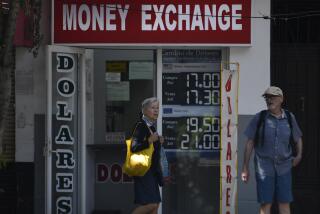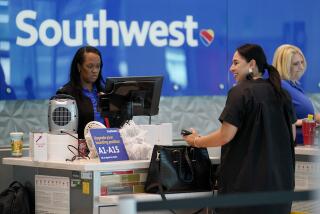America travelers best off avoiding the euro
Before 21-year-old Neel Bhuta spent a semester abroad last year, the New York University economics and history major carefully studied the cost of a beer abroad.
In Prague, Czech Republic, $2 was expensive by his standards, even compared with the $8 he would pay in Rome. âOne of the reasons I chose to go to school in Prague was that it was not tied to the euro and was going to be a lot cheaper,â Bhuta said. âI mostly stuck to visiting Central and Eastern European countries because my dollar would go so much further.â
The blasted dollar took us so far for so long, but it couldnât -- and didnât -- last forever. In the last two years, the dollar has wilted against many foreign currencies.
In late July, the beleaguered buck took a beating as the euro reached an all-time high and the pound a 26-year peak against the greenback. The currency story is similar in Australia, New Zealand and Canada.
The outlook isnât much better for next year.
âOver the next few years, the dollar will continue to go down,â said Kenneth Rogoff, professor of public policy and economics at Harvard. âEconomists are predicting that a 20% further drop is likely in the next three to five years, and a 40% drop is possible.â
Blame a faltering American economy, the sub-prime mortgage crisis and the $800 billion Americans put annually on the nationâs credit card. Interest rates are steady here but poised to move higher in Australia, New Zealand and Britain, so foreign investors are chasing higher returns by investing there, not here.
Less demand for the dollar means a lower exchange rate. For Americans, that means higher prices.
So do we just stay home? American travelers who continue to book flights in record numbers from the U.S. say no.
âYou can go to Colombia and get a steak dinner for $10, but you can hardly get a hamburger for $10 in Europe,â said Lauren Vaccarello, director of publishing for GoCurrency.com, a Website that combines currency conversion, exchange-rate information and other financial information for travelers.
âAmericans tend to go to places that are ingrained in them, but they can get so much more for their money in other places, feel as if theyâve been on vacation and come home with money.â
Many people consider only the price of flights and hotels, neglecting to factor in costs theyâll face once they arrive, said Bill Ridgers, chief analyst for travel and tourism with the Economist Intelligence Unit in London. âOften, they are shocked.â
Travelers unjustly limit their options, however, if they look only at how exchange rates affect their travel budgets, Ridgers said. They need to factor in local labor rates, cost of transportation, infrastructure and availability of natural resources.
Tokyo and New Delhi would be polar opposites in value, Ridgers said. Travelers would find Tokyo costly because it has few natural resources, pays dearly to import food and has a wealthy population that can afford higher-priced goods. Because land is scarce there, any construction is pricey. India is a better value because of the lower cost of labor, abundant natural resources and a relatively small middle class.
U.S. travelers still find great values in Central and South America. For instance, when Holli Heblâs family visited her this spring in Guatemala, where she teaches at a nonprofit school, the group of seven spent only $1,000, excluding airfare, for eight days of food, good hotels, shuttles and such activities as riding a zip line and touring Lake AtitlĂĄn.
Those great, tropical deals, however, donât necessarily translate to the touristy areas of the Caribbean. âThe answer is simple supply and demand. Much of the Caribbean is set up to be fairly exclusive, aimed at the upper end of the market,â Ridgers said. âPlus, the islands are quite small [limiting supply], and the two things together push the price up.â
Countries not yet tied to the euro remain a better value. For example, the Czech Republic has been a member of the European Union since 2004 but wonât complete the process of adopting the euro until at least 2009 and, perhaps, as late as 2012, Vaccarello said.
âOnce the Czech Republic adopts the euro,â she said, âthe days of 20 to 25 koruna beers [about $1] will be gone.â And where will Bhuta, the NYU economics major, find the best beer bargain?
He and a group of friends are considering Morocco, Turkey and Egypt.
âWhen I go to a less-developed country not based on the euro, I just get a lot more bang for my buck,â he said.
Comments? Email [email protected]
More to Read
Sign up for The Wild
Weâll help you find the best places to hike, bike and run, as well as the perfect silent spots for meditation and yoga.
You may occasionally receive promotional content from the Los Angeles Times.






